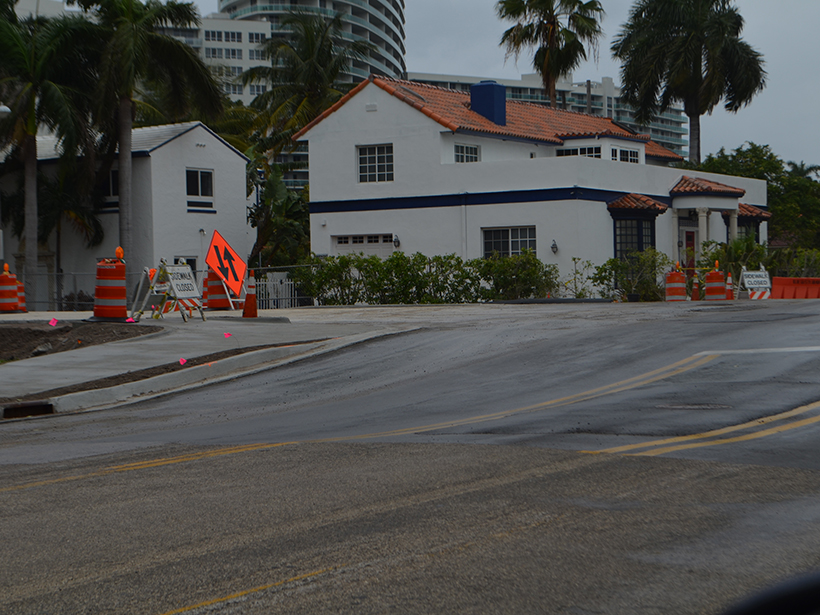Raising Flood-Prone Roads Has Angered Miami Beach Residents. Experts Say They Need to Go Higher. According to new calculations, city consultants say that Miami Beach, Fla., needs to raise its roads even higher than they already have to avoid flooding from rising sea levels. Sounds simple, right? As this article from the Miami Herald shows, it’s anything but. I really appreciate this window into the real-life complications of climate adaptation.
—Jenessa Duncombe, Staff Writer
Keeping African Climate Activists in the Picture.
It hurts that it happened to me!
I have spoken against it because it is wrong!
But at least now I know that it won’t happen to any other African climate activist!
Now is the time to listen to the African voices! pic.twitter.com/AIPcHXREzD
— Vanessa Nakate (@vanessa_vash) January 24, 2020
Ugandan climate activist Vanessa Nakate spoke out after she was cropped out of a photo taken of her, Greta Thunberg, and other activists at the recent World Economic Forum in Davos, Switzerland. The Associated Press editor in chief has apologized for cropping out the only person of color in the photo and, according to NBC News, has held several town hall meetings for AP employees to discuss issues of racial sensitivity.
—Randy Showstack, Staff Writer
Fertilizer Feeds Humanity—and It’s Destroying the Gulf Of Mexico.

Interested in why the Gulf of Mexico dead zone exists, what it’s hurting environmentally and financially, and what could be done to help mitigate it? Check out this excellent, succinct, and poop emoji–filled explainer video from Grist.
—Timothy Oleson, Science Editor
Wildfire Emissions. This week, the February issue of Eos is on its way to AGU
members’ mailboxes. (The print version is also available online as a pdf.) This special issue focuses on wildfire emissions research, and Eos.org will continue to provide special coverage of this important topic throughout the month.
—Faith Ishii, Production Manager
What Makes an Earthquake a “Roller” or a “Shaker”?
Let’s talk about earthquake shaking. Ppl who feel earthquakes sometimes talk about “rollers” versus “shakers.” The shaking you feel in any earthquake depends to some extent on geology: if you live in a valley, you tend to feel waves sloshing, or rolling.
— Susan Hough (@SeismoSue) January 29, 2020
Earlier this week, much of the Caribbean felt an M7.7 quake that took place off the coast of Jamaica. Puerto Rico continues to experience a swarm of quakes that began in late December. This is a nice thread that explains why the ground is rolling versus shaking during a seismic event.
—Kimberly Cartier, Staff Writer
What Really Killed the Dinosaurs? Looks like it really was the asteroid….
—Nancy McGuire, Contract Editor
Enjambre de Terremotos Inusuales Golpean a Puerto Rico.
We are so proud to partner with @Planeteand0 in offering Eos articles in Spanish. We’re off to a great start thanks to @Ber_Bastien and the Planeteando team, and translator Rebeca Lomelí. 1/2https://t.co/PC3sPWwZUp
— AGU’s Eos (@AGU_Eos) January 28, 2020
I’m so happy Eos is off to a great start in offering Spanish translations of our articles. The fact that our partner Planeteando is located in Northern California (my home state!) is just icing on the cake!
—Caryl-Sue, Managing Editor
Citation:
(2020), This week: From rising roads in Miami to dead zones in the Gulf, Eos, 101, https://doi.org/10.1029/2020EO139511. Published on 31 January 2020.
Text © 2020. AGU. CC BY-NC-ND 3.0
Except where otherwise noted, images are subject to copyright. Any reuse without express permission from the copyright owner is prohibited.
Text © 2020. AGU. CC BY-NC-ND 3.0
Except where otherwise noted, images are subject to copyright. Any reuse without express permission from the copyright owner is prohibited.

